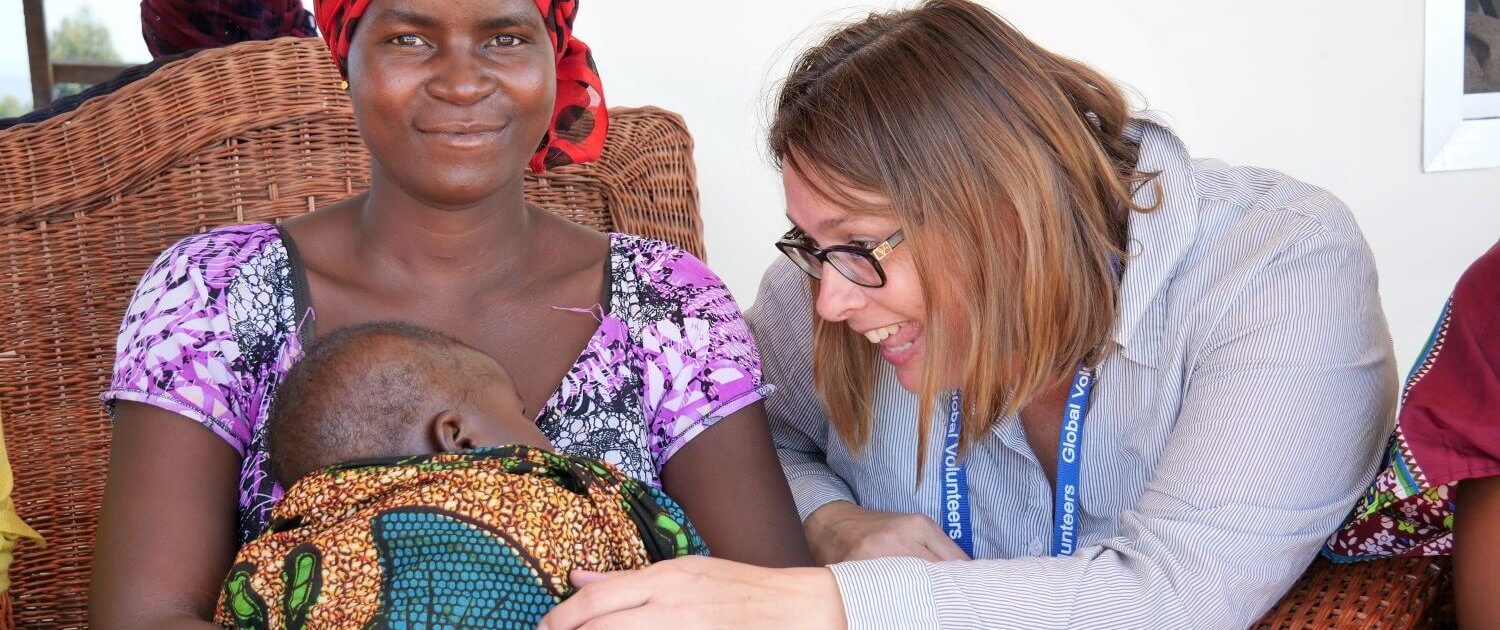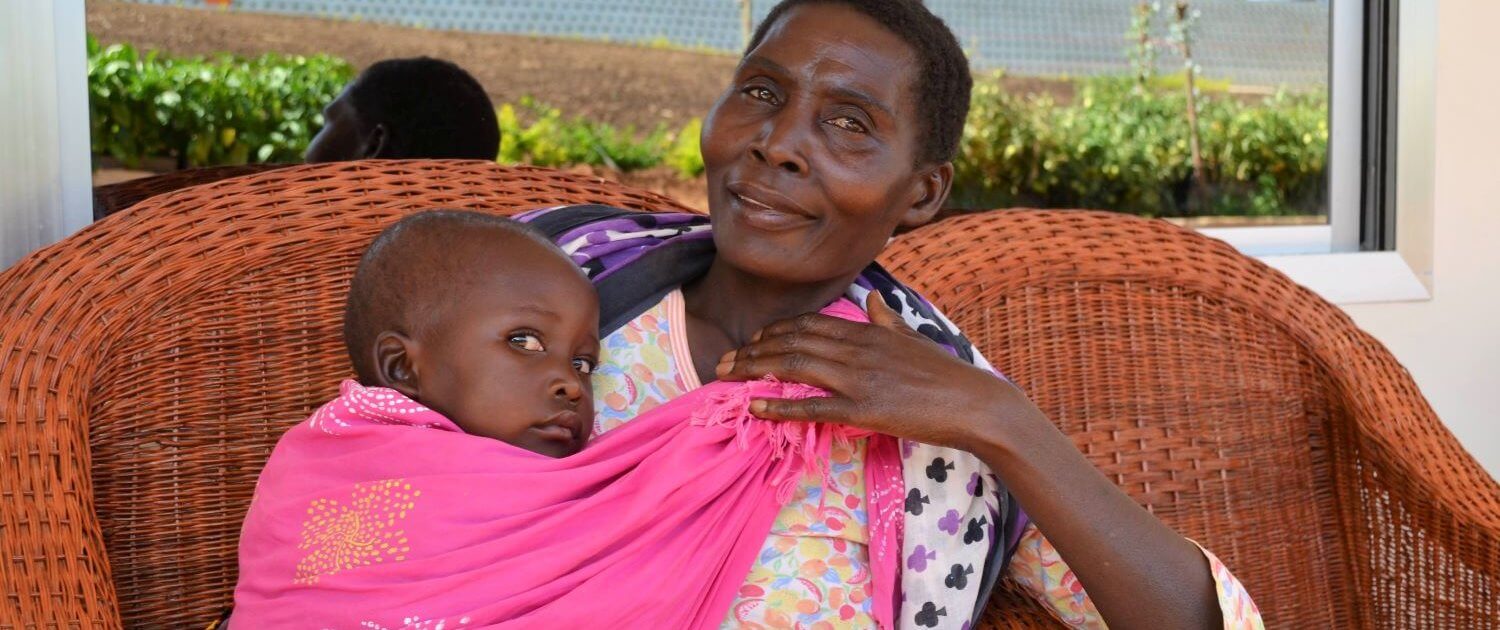Breastfeeding Workshop a Tenet of RCP Mothers Education
Decades of evidence indicates that there is nothing better for a mother and her baby’s well-being than exclusive breastfeeding. But for several reasons, many parents make other choices, especially in struggling communities around the world. Global Volunteers promotes breastfeeding through the Reaching Children’s Potential (RCP) Program in the Ukwega Ward of Tanzania as a way to optimize a newborn’s health. The lessons from RCP workshops to promote breastfeeding are summarized here in 10 facts. This is the first post in a series about the areas of child development that Global Volunteers works on in struggling communities worldwide.
Breastfeeding Increases in RCP Villages
According to the World Health Organization, exclusive breastfeeding is giving no other food or drink besides breast milk (from the mother or a wet nurse) to a baby for at least the first six months of life. Exclusive breastfeeding may sound like common sense, but the difficulty and discomfort that breastfeeding may cause mothers (especially at the beginning), combined with the growing availability and publicity of infant formulas, discourages some mothers from exclusive breastfeeding. This is particularly true in communities where the benefits of breastfeeding may not have been sufficiently explained.
That’s why we integrated this important message into RCP workshops for mothers in Tanzania. Volunteers and caregivers present this information regularly in groups and home visits and reinforce messages during pregnancy and when the baby is born. Volunteers with expertise in this field are engaged to answer questions and further emphasize the long-term benefits.

Drawing from the same materials that we use to train mothers in Tanzania on the importance of breastfeeding, we have extracted ten benefits of breastfeeding for the mother and the baby:
1. Optimizes nutrition
Breast milk is naturally rich in nutrients and antibodies. When a child is exclusively breastfed, their immune system is strengthened and enabled to fight infectious and chronic diseases. For instance, reports indicate that babies who are not exclusively breastfed are fifteen times more likely to die from pneumonia than newborns who are breastfed exclusively.
2. Customized for newborn
All breast milk is not the same. During the first few days, the mother’s colostrum differs from the milk produced later. Colostrum, usually yellow and thicker than milk, is packed with proteins and immune boosters that protect a newborn. But even the milk produced later changes constantly according to the baby’s needs. During growth spurts, the fat content increases; if the mother or baby is ill, the quantity of antibodies increases to compensate. Breast milk also changes during the night, offering more serotonin to help babies sleep. Finally, mothers commonly notice breast milk changes even during a feeding, becoming fattier as the baby drinks more. All these changes are naturally suited to meet the baby’s immediate needs.
3. Aids digestion
Breast milk contains the right quantities of fat, sugar, water, and protein for a newborn. While it may not be as filling as formula, breast milk allows for easier digestion and provides strong protection from infant gastrointestinal infection.
4. Improves cognition
Breast milk promotes sensory and cognitive development. Studies suggest that children who have been exclusively breastfed have higher IQs than children who haven’t. For instance, according to a study carried out on 3,500 babies in Brazil, the longer the babies were breastfed, the higher they scored on IQ tests as adults.
5. Enhances bonding
The closeness of skin-to-skin contact during breastfeeding enhances the emotional connection between mother and baby and creates a feeling of safety for the newborn. This experience is also enjoyable for mothers because science finds that mothers release a cocktail of calming hormones when nursing, including oxytocin (the “love hormone”) and beta-endorphin (the “pleasure hormone”). The latter even encourages mothers to respond to babies’ needs.

6. Improves mothers’ health
Scientific studies show that breastfeeding lowers the risk of anemia, breast cancer, high blood pressure, type 2 diabetes, cardiovascular disease, and urinary tract infections, and it’s also associated with less risk of uterine and ovarian cancer.
7. Helps weight loss
Breastfeeding burns about 500 extra calories daily and helps shrink the uterus to normal size. A nursing mom can return to her pre-pregnancy shape and weight much faster than a mother who doesn’t breastfeed.
8. Enhances emotional well-being
The oxytocin and prolactin released during breastfeeding reduce stress and increase positive feelings for the mother. Besides this, when a mother sees that she can fully nourish her baby, it boosts her self-esteem and confidence. These, in turn, lead to less risk of postpartum depression and a more positive mood that is also beneficial for the baby and the whole family.
9. It’s Free!
Against common wisdom, there is such a thing as a free lunch, at least for babies. Naturally, as long as a baby sucks, there will be milk. This is great considering how expensive infant formula is everywhere. Especially in struggling communities, having a free supply of perfect nourishment is no small thing.
10. It’s convenient
No need to find a store or bother with the right temperature or wash bottles. Breast milk is always clean and at the right temperature. This is particularly helpful if the mother must travel long distances.
Scientists are just beginning to understand all the benefits of breastfeeding. What is clear to this point is that there is nothing better for a mother and her baby’s well-being than exclusive breastfeeding. Unfortunately, some mothers are unable to breastfeed. However, whenever possible, we should encourage mothers worldwide to breastfeed, especially in struggling communities where nutrition is precarious, and disease is rampant. Please support Global Volunteers’ ongoing program supporting breastfeeding by new mothers in Tanzania by donating to the Reaching Children’s Potential Program.
You may also like:




Leave a Reply
Want to join the discussion?Feel free to contribute!